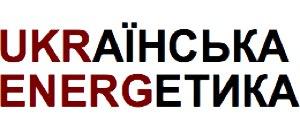The “Augean stables” of the extractive sector: is there any progress?
During its meeting of 19 March 2021, the National Security and Defense Council (NSDC) announced an audit of all special extraction permits issued after 1991, and revoked 19 hydrocarbon extraction permits issued to related legal entities (for details, see: analytical paper by DiXi Group).
Later, in May, the State Service for Geology and Subsoil announced unscheduled inspections of sites for which special extraction permits were issued outside the auction procedure and sites where no exploration or extraction operations take place. In other words, the State Service for Geology and Subsoil wants to identify the so-called “dormant” licenses for geological exploration and production of extractive commodities (first of all, oil and gas).
A month later, after the meeting of 18 June, the NSDC announced revocation of another nine special extraction permits (for hydrocarbons, titanium and ores). According to NSDC Secretary Oleksii Danilov, these sites were used in bad faith. The Council also said that two special extraction permits for oil and natural gas, held by Geo Alliance companies, were voluntarily surrendered to the government.
The audit of special extraction permits and identification of “dormant” licenses is a positive signal for taking Ukraine’s extractive sector out of stagnation. The practice of procuring special extraction permits and then sitting idle on them for decades is unacceptable from the viewpoint of Ukraine’s energy independence and national security, raising budget revenues and the country’s investment attractiveness.
This problem was brought into the spotlight by Ukraine’s Extractive Industries Transparency Initiative (EITI) Report for 2019, which for the first time included the so-called project-wise reporting by extraction companies. Using the materials of this report and open sources, DiXi Group analyzed all valid special extraction permits for oil and gas bearing sites and identified at least 63 “dormant” licenses. The holders of another six special extraction permits paid less than 20 thousand hryvnias in rent, which may indicate low extraction activity on these sites. It is also worth noting that as of 2019, 204 oil and gas extraction permits weren’t covered by the EITI Report for one reason or another.
An analysis has revealed an interesting trend: in most (41%) cases, changes were made in special extraction permits by adjusting the commencement date of extraction operations, which sort of “transformed” a “dormant” asset into a working one. This way, investors extended the deadline for fulfilment of their obligations under the work program.
Even this primary analysis of data for 2019 proves that there are still a lot of “dormant” special extraction permits in Ukraine, and a broad range of transparency instruments (EITI reports, registers of special extraction permits, information resources of the Justice Ministry, the State Service for Geology and Subsoil and Geoinform SRPE) help identify them.
Not denying the positive effect from the NSDC’s efforts, it is still worth pointing out that we need systemic decisions and actions aimed to solve the problem in general, not targeted sanctions against particular legal entities. In addition, the practice of solving the problem of “dormant” licenses using such legal-political methods is potentially dangerous from the viewpoint of possible political influence.
Systemic instruments of solving this problem should be proposed in the revised Subsoil Code, set to be adopted in the nearest future, and in the draft law 3790, which is going to improve the procedure of reporting by the government and companies and introduce the practice of completely disclosing the texts of agreements (including PSAs) that will be made in the future. For legislative framework and implementation of effective transparency instruments in extractive industries are the best way of preventing the use of natural resources in bad faith.
The EITI is an independent standard voluntarily maintained at international level, being implemented in more than 50 countries of the world including Ukraine. In order to implement this standard and pursuant to the Ukraine-EU Association Agreement’s requirements concerning reporting by extraction companies (Directive 2013/34/EU), the Extractive Industries Transparency Law was passed in 2018. Presently, the Verkhovna Rada is deliberating on the draft law 3790, aimed to promote greater transparency of the extractive sector and implement anticorruption approaches, particularly through the requirement to disclose extraction contracts.
Olha Polunina, Manager for Sustainable Development at DiXi Group
Serhii Yevtushok, Junior Analyst at DiXi Group







